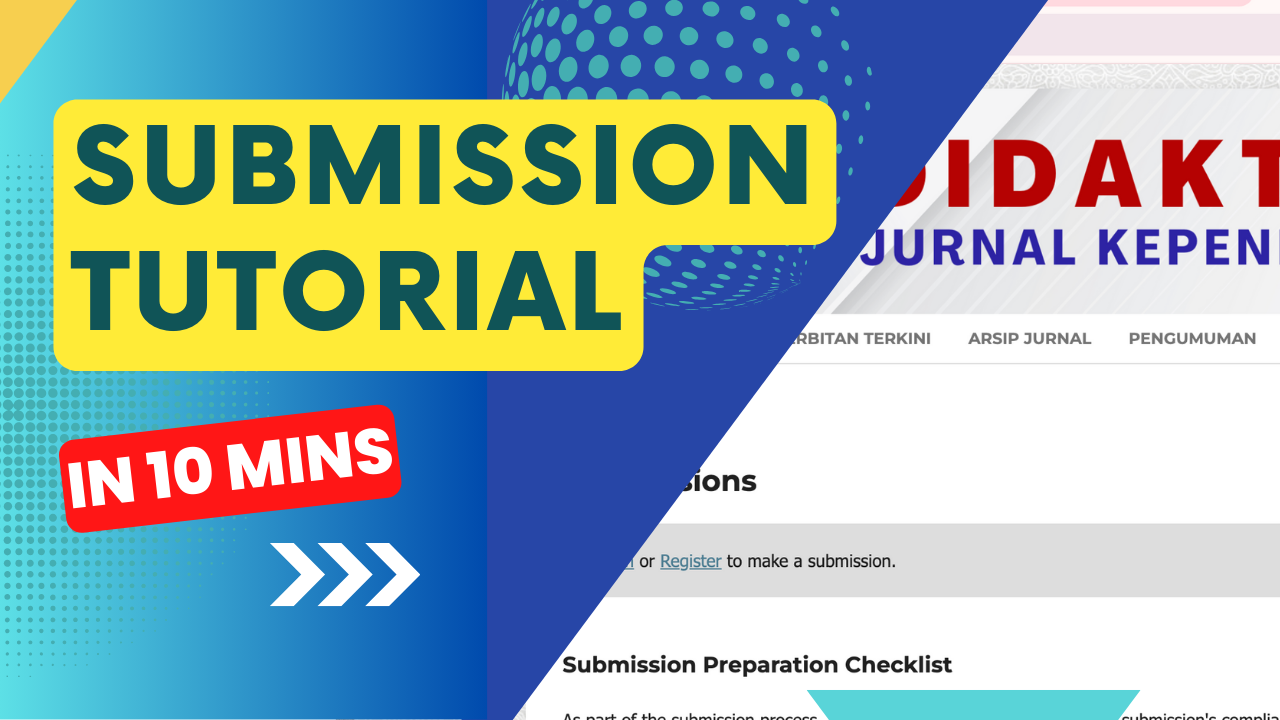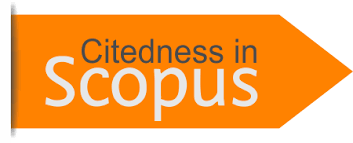Gender Equality From Ra. Kartini’s Perspective and Its Relevance in Education
Abstract
The purpose of this article is to examine the concept of gender equality in education which was echoed by Kartini during colonialism. This study found that there was relevance of the concept of gender equality at that time in the education system. Apart from that, this article also reveals how Kartini's thoughts can influence education, especially focusing on gender access, analyzes several forms of discrimination based on gender regarding educational rights during colonialism which had an impact on education policy, and analyzes the follow-up actions that must be taken in efforts to overcome gender equality. in education. It begins with an analysis of the concept of gender equality in the global concept that occurred during colonialism which is drawn into Kartini's local concept of gender equality in education. Thus, we can get a gender policy concept that can be generalized in the world of education.
Metrics
References
Adawiyah, R., & Rachmaria, L. (2021). MITOS “KANCA WINGKING” PEREMPUAN JAWA DALAM FILM KARTINI (Analisis Semiotika Roland Barthes). http://filmindonesia.or.id/movie/viewer/2017#.XfsDUOgza00
Anggraini, T. R. (2021). Gagasan Emansipasi Wanita melalui Konsep Tokoh Kartini. Disastra: Jurnal Pendidikan Bahasa Dan Sastra Indonesia, 3(1), 35. https://doi.org/10.29300/disastra.v3i1.3481
Aragonés-González, M., Rosser-Limiñana, A., & Gil-González, D. (2020). Coeducation and gender equality in education systems: A scoping review. Children and Youth Services Review, 111. https://doi.org/10.1016/j.childyouth.2020.104837
Febriana, E. (2010). Kartini Mati Dibunuh: Membongkar Hubungan Kartini dan Freemason (1st ed.). NAVILA IDEA.
Garcia, M. F., Ahmed, R., Flores, G. L., & Halliday, C. S. (2023). Gender equality and comparative HRM: A 40-year review. Human Resource Management Review, 33(4). https://doi.org/10.1016/j.hrmr.2023.100972
Geertz, C. (1960). The Religion of Java. Free Press.
Kartini, R., & Sutrisno, S. (1979). Surat-Surat Kartini: Renungan Tentang dan Untuk Bangsanya [Kartini’s Letters: Her Reflection about and to Her Nation]. Djambatan.
Krajewski, M., Frewer, A., & Pirner, M. L. (2020). Sustainable Development Goals and Human Rights (M. Kaltenborn, M. Krajewski, & H. Kuhn, Eds.; Vol. 5). Springer International Publishing. https://doi.org/10.1007/978-3-030-30469-0
Larsen, E., Moss, S. M., & Skjelsbæk, I. (2021). Gender Equality and Nation Branding in the Nordic Region (E. Larsen, S. M. Moss, & I. Skjelbaek, Eds.; 1st ed., Vol. 1). Routledge. https://doi.org/10.4324/9781003017134
Luo, Y., Guo, F., & Li, R. (2021). Gender equality and expansion of higher education: Testing effectively maintained inequality theory against the case of China. International Journal of Educational Research, 110. https://doi.org/10.1016/j.ijer.2021.101855
Marihandono, D., Khozin, N., Arbaningsih, D., & Tangkilisan, Y. B. (2016). Sisi Lain Kartini. Museum Kebangkitan Nasional.
Miralles-Cardona, C., Chiner, E., & Cardona-Moltó, M. C. (2021a). Measurement Invariance of the Sensitive Assessment for Gender Equality (SAGE) Index Across Degree: Findings from two Teacher Education Programmes in Spain. Journal of New Approaches in Educational Research, 10(1), 157–174. https://doi.org/10.7821/NAER.2021.1.611
Miralles-Cardona, C., Chiner, E., & Cardona-Moltó, M. C. (2021b). Measurement Invariance of the Sensitive Assessment for Gender Equality (SAGE) Index Across Degree: Findings from two Teacher Education Programmes in Spain. Journal of New Approaches in Educational Research, 10(1), 157–174. https://doi.org/10.7821/NAER.2021.1.611
Qibtiyah, A. (2009). INDONESIAN MUSLIM WOMEN AND THE GENDER EQUALITY MOVEMENT. JOURNAL OF INDONESIAN ISLAM, 03(1), 168–197.
Sastroatmodjo, S. (2005). Tragedi Kartini [Kartini’s Tragedy]. Penerbit Narasi.
Saptadi, N. T. S., Mardhiyana, D., Edi, S., Hayati, R., Susiloningtyas, R., Handayani, R., ... & Wibowo, M. A. ETIKA & PROFESI KEGURUAN.
Shailaja, F. (Ed. ), & Madeleine, A. (Ed. ). (2008). Gender education and equality in a global context: conceptual frameworks and policy perspectives. https://nbn-resolving.org/urn:nbn:de:0168-ssoar-69638
Shakeshaft, C., Brown, G., Irby, B. J., Grogan, M., & Ballenger, J. (2007). INCREASING GENDER EQUITY IN EDUCATIONAL LEADERSHIP. In Handbook for Achieving Gender Equity Through Education (2nd ed., pp. 103–131).
Solekhah, H. (2018). KARTINI: A PRIYAYI AND HER CONFRONTING THOUGHTS ABOUT LIMITED EDUCATION DURING DUTCH COLONIALISM. International Journal of Multidisciplinary Thought, 7(3), 371–380.
Subrahmanian, R. (2005). Gender equality in education: Definitions and measurements. International Journal of Educational Development, 25(4 SPEC. ISS.), 395–407. https://doi.org/10.1016/j.ijedudev.2005.04.003
Sukoharsono, E. G. (2006). Alternatif Riset Kualitatif Sains Akuntansi: Biografi, Phenomenologi, Grounded Theory, Critical Ethnografi dan Case Study. In K. Ashar, G. Irianto, & N. Suryadi (Eds.), Analisa Makro dan Mikro: Jembatan Kebijakan Ekonomi Indonesia (pp. 230–245). BPFE. Universitas Brawijaya.
Tashadi. (1985a). RA KARTINI. Depdikbud.
Tashadi. (1985b). RA KARTINI. Depdikbud.
Toer, P. A. (1962). Panggil Aku Kartini Saja [Just Call Me Kartini]. Hasta Mitra.
Vázquez, P. (2023). Humanity and environment, the problematic relationship between changing nature and gender difference. Sustainable Chemistry and Pharmacy, 36. https://doi.org/10.1016/j.scp.2023.101262
Windasari, R., Anshari, & Kembong Daeng. (2023). Analisis Gender dalam Novel Geni Jora dan Kartini Karya Abidah El Khalieqy: Kajian Kritik Sastra Feminisme. Jurnal Onoma: Pendidikan, Bahasa, Dan Sastra, 9(2), 795–807. https://doi.org/10.30605/onoma.v9i2.2687
Copyright (c) 2024 Nur Rohmah Nilam Sari, Neni Mariana, Heru Subrata

This work is licensed under a Creative Commons Attribution 4.0 International License.
Dengan mengirimkan naskah artikel, berarti penulis setuju dengan segala kebijakan yang ditetapkan oleh jurnal dan penerbit.
Penulis menyatakan bahwa:
- kebijakan ini telah diketahui dan disetujui bersama oleh semua penulis;
- naskah artikel belum dipublikasikan secara resmi sebelumnya di media ber-ISSN atau ber-ISBN yang terdaftar, kecuali dalam bentuk abstrak atau sebagai bagian dari materi kuliah, atau skripsi/tesis/disertasi yang tidak diterbitkan;
- naskah tidak sedang dalam proses editorial dan dipertimbangkan untuk publikasi di tempat lain;
- publikasi naskah ini telah disetujui oleh semua penulis, institusi afiliasi penulis, otoritas yang bertanggung jawab, dan lembaga di mana kegiatan telah dilakukan;
- naskah berisi materi yang aman dari pelanggaran hak cipta;
Perjanjian Hak Cipta dan Lisensi
- Penulis memiliki hak cipta dan hak kepemilikan lainnya yang terkait dengan artikel.
- Penulis memiliki hak dan diizinkan untuk menggunakan substansi artikel untuk karya-karya penulis berikutnya, termasuk untuk keperluan bahan/materi kuliah dan buku.
- Penulis menyerahkan hak publikasi pertama kepada jurnal dengan di bawah Lisensi Creative Commons (CC BY 4.0).
Pernyataan Lisensi CC BY 4.0
Anda diperbolehkan:
- Berbagi — menyalin dan menyebarluaskan kembali materi ini dalam bentuk atau format apapun;
- Adaptasi — menggubah, mengubah, dan membuat turunan dari materi ini untuk kepentingan apapun, termasuk kepentingan komersial.
Pemberi lisensi tidak dapat mencabut ketentuan di atas sepanjang Anda mematuhi ketentuan lisensi berikut ini.
- Atribusi — Anda harus mencantumkan nama yang sesuai, mencantumkan tautan terhadap lisensi, dan menyatakan bahwa telah ada perubahan yang dilakukan. Anda dapat melakukan hal ini dengan cara yang sesuai, namun tidak mengisyaratkan bahwa pemberi lisensi mendukung Anda atau penggunaan Anda.
- Tidak ada pembatasan tambahan — Anda tidak dapat menggunakan ketentuan hukum atau sarana kontrol teknologi yang secara hukum membatasi orang lain untuk melakukan hal-hal yang diizinkan lisensi ini.






.png)








